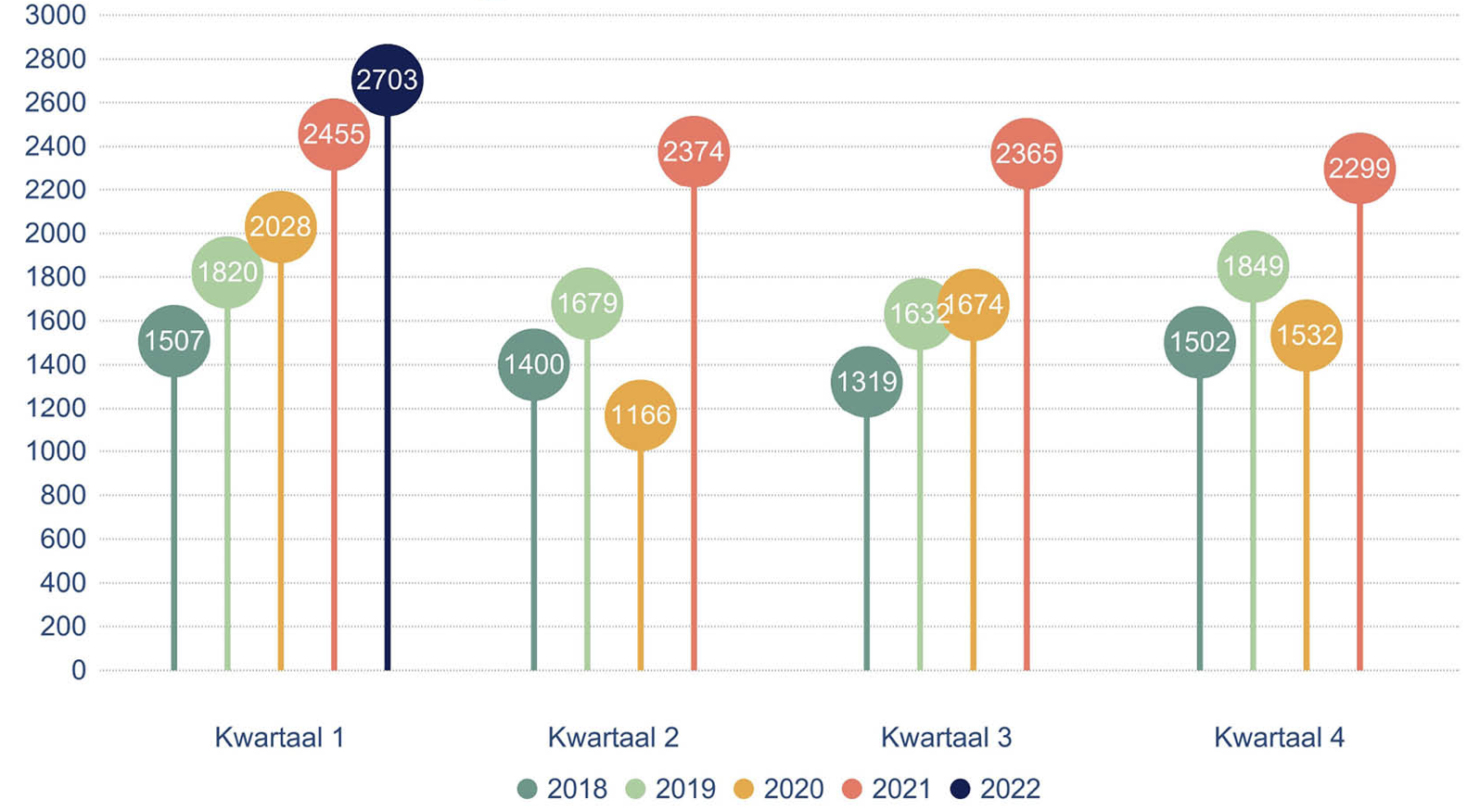In recent years, the number of people who are unable to work due to burnout increased dramatically, painting a bleak picture of the psychosocial health of the working population.
Between 2018 and last year, the number of people off sick with burnout increased by 66%, an analysis by the Independent Health Insurance Funds (MLOZ), which warned these were "alarming figures" and called for "a critical look at the current approach to these issues."
"The current system is under pressure and the prognoses are alarming. Government policy today is fragmented and therefore insufficiently comprehensive," the body's Director-General Xavier Brenez, said in light of the current approach in Belgium to burnout.
Overall, all psychosocial disorders are on the rise: The number of people suffering from depression increased by 12% in the last three years, with 34% more people experiencing dysthymia (long-term depression), while the number of people with anxiety increased by one-fifth.

Incapacity to work due to burnout on the rise. Credit: MLOZ
Malaise and fatigue also increased by 34%, with half of the people suffering from this being diagnosed with burnout after seven months. The MLOZ warned that these figures are just an omen of what is still to come if the government does not intervene.
A recent study already showed that the risk of burnout among employees increased sharply during the pandemic, from 23.8% in 2019 to 28.5% in the autumn of 2021, mainly driven by higher job insecurity and a heavier work intensity due to lower staffing levels and the drop-out of colleagues.
Paradigm shift
Brenez stressed that a paradigm shift is called for to turn the tide, adding that the government must dare to invest in the short term, and aim for returns in the medium and long term.
"Investing in prevention on and off the work floor, and in particular in mental health, is crucial. Reintegration of (long-term) sick people must also be more efficient," he said.
Related News
- Burn-out victims at high risk of relapse
- Increasing number of people off work due to stress, says Minister De Sutter
- Artificial intelligence tools to detect burnout
The MLOZ has called for a more comprehensive policy, more prevention and empowerment of all actors involved to ensure improvement is possible.
This would include guidance from experts and networks at work to implement some general practices that are recognised to be beneficial, and better consultation between the parties concerned to facilitate the fast exchange of information and make the reintegration process at work more flexible.

